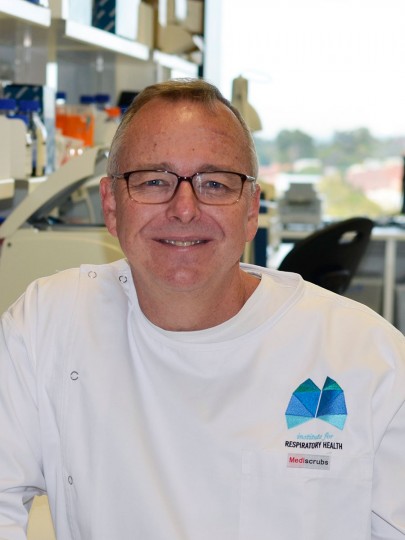Research gives hope to those with rare diseases
Today, Tuesday 28 February 2023, is Rare Disease Day; the day dedicated to raising awareness for the 300 million people living with a rare disease around the world.

A rare disease is a medical condition that affects fewer than 1 in 2,000 people. Associate Professor Steve Mutsaers, a researcher from the Institute for Respiratory Health said, “There are more than 7,000 rare diseases in the world and many of these relate to lung conditions like alpha-1 antitrypsin deficiency, cystic fibrosis and idiopathic pulmonary fibrosis (IPF).
“IPF causes scarring of the lungs. Every year in Australia it is estimated 1,250 people are diagnosed with this rare disease and patient survival is often around three to five years.
“Those who have it have to fight to breathe every single day. There’s currently no cure but research in this space could change this,” said Associate Professor Mutsaers.
“Research into rare diseases like IPF can bring us one step closer to life-changing breakthroughs and better treatments, but more funding is required, particularly for basic or discovery science, that aims to understand the disease process and discover new ways to treat the disease.
“From this knowledge, new therapies can be developed that not only improve the quality of life for those with the disease but in some cases cure it.
“Many rare diseases resemble common ones and can even involve some of the same disease pathways. Funding research into rare diseases like IPF could provide insight into the development of more common diseases, so it’s a win-win.”
Associate Professor Mutsaers and colleagues at the Institute for Respiratory health are trying to discover what causes the scarring of the lungs in IPF.
They are particularly interested in understanding the role the immune system plays in IPF and if a breakdown in the body’s normal control mechanisms can result in the body attacking itself.
Identifying how this happens may lead to new treatments being developed but will enable doctors to better predict which patients are likely to respond better to current treatments.
“Research gives hope to those with rare diseases like IPF. It helps us look into the causes, treatments and potentially a cure for IPF and other rare diseases,” said Associate Professor Mutsaers.
Today, around Perth, key landmarks will light up to mark Rare Disease Day including Optus Stadium, Rockingham Clock Tower and Matagraup Bridge.